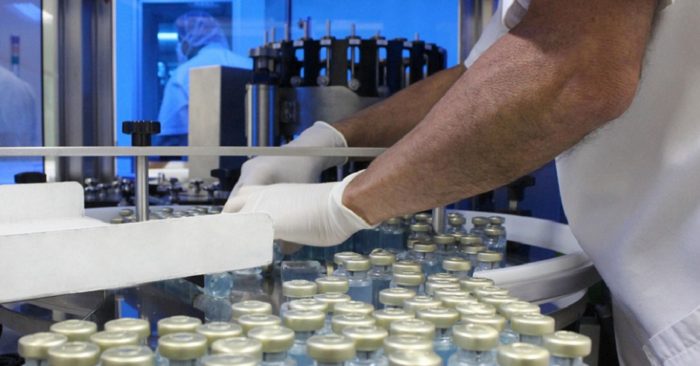Costa Rica develops serum that inhibits the coronavirus
Last update: September 19, 2020
This was revealed by the results of tests carried out at George Mason University in the United States, which confirmed that the strategy of the Costa Rican scientists allows the obtaining of antibodies that neutralize the infectivity of the virus. These antibodies could prevent the disease from progressing in patients.
It consists of two equine antibody formulations prepared at the Clodomiro Picado Institute of the University of Costa Rica (ICP-UCR), from the plasma of horses hyperimmunized with viral proteins, capable of inhibiting the infectivity of the SARS-CoV-2 coronavirus that causes COVID-19 disease.
“The results show that the horses produced a large amount of antibodies that block the entry of the virus into human cells, indicating that the drug can be very efficient and that the amount that will be required to treat patients would be relatively low.” said Dr. Alberto Alape, ICP-UCR researcher, microbiologist and clinical chemist.

The sample was sent to George Mason University in the United States, which has laboratories with the best biosecurity conditions in the world to maintain SARS-CoV-2 in cell cultures. This model was used to assess whether equine antibody preparations could inhibit the virus’s ability to infect cells.
Once again, Costa Rica’s human and technical capacity is evident, based on its own skills, updated knowledge and installed technology, which takes a fundamental step in the fight against COVID-19.
Costa Rica has been fighting COVID-19 from the very beginning, from developing their own screening tests to manufacturing non-invasive ventilators for COVID-19 patients.
Analysis approved
The creation of heterologous antibodies purified from horse plasma takes a fundamental step with the validation of George Mason University.
This plasma has been shown to neutralize SARS-CoV-2 and is 100 times more potent than convalescent plasma obtained from humans, which is another curative treatment that Costa Rica has successfully developed against COVID-19.
The Center’s rigorous and extensive analysis of this equine antibody preparation will allow Costa Rica to move forward with confidence.
The serums passed the tests
In the past four months, the ICP-UCR researchers used various SARS-CoV-2 virus proteins to immunize six donated horses and thereby induce the immune system of these animals to produce specific antibodies.
In total, there were four immunizations with different combinations of SARS-CoV-2 proteins that, at no time, harmed the health of the animals.
The scientists then extracted the blood and separated the blood cells from the blood plasma, which contains the antibodies.
The antibodies were then purified in the pharmaceutical plant of the UCR’s Clodomiro Picado Institute and, finally, they were used to formulate and package the new medicine, which is an injectable liquid.
Among the proteins selected for immunization is the S1 protein, which is the viral protein that binds to the cellular receptor. Also proteins E and M, as a recombinant construct, and nucleocapsid protein N.
Formulations also passed sterility tests
The formulations also successfully passed sterility tests conducted by the Pharmaceutical Advisory and Analysis Laboratory (Layafa-UCR), in which the serum was found to have the required sterility to be applied to patients.
Now, the most important step continues: the clinical study to be carried out by the Costa Rican Social Security Fund. This study will conclusively define whether the formulations will be effective in treating patients with COVID-19.
This study will compare the efficacy and clinical safety of the two equine antibody preparations in the context of managing patients with COVID-19.
Specifically, the ability of the treatment to help patients remove the virus from the tissues will be assessed. In addition, the response of proinflammatory cytokines in patients receiving the treatment will be analyzed by means of specialized tests that will be carried out at the Faculty of Microbiology at the UCR.
The Country is getting ready to try out the new medicine
Currently, a group of professionals from the CCSS and the UCR Faculty of Medicine are preparing the protocol to be used for the clinical use of the new medicine.
For its part, the ICP-UCR will focus on optimizing the production of the new medicine to reduce costs and maximize process performance.
According to the CCSS hierarchy, it has been shown once again that Costa Rica can have valuable scientific power to defend the population against a global threat like SARS-CoV-2.
